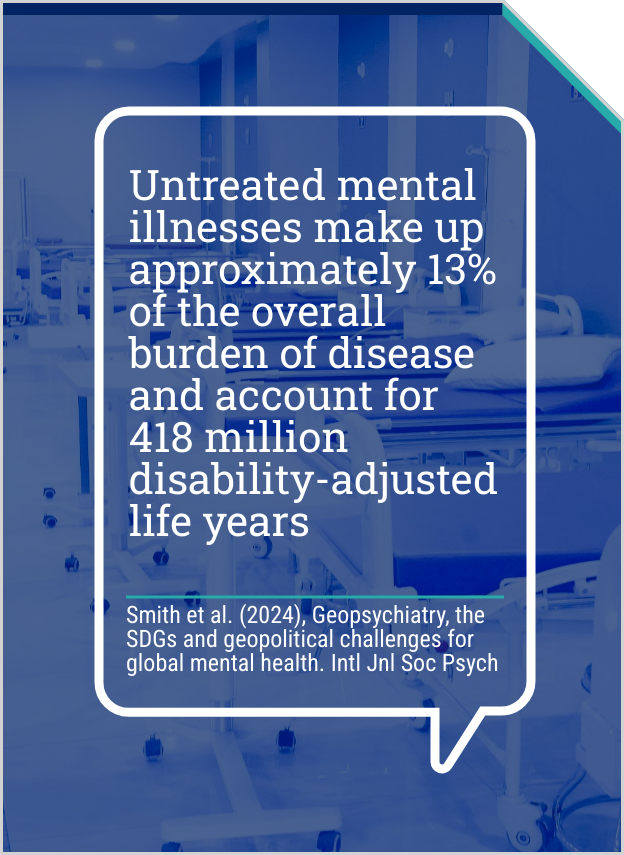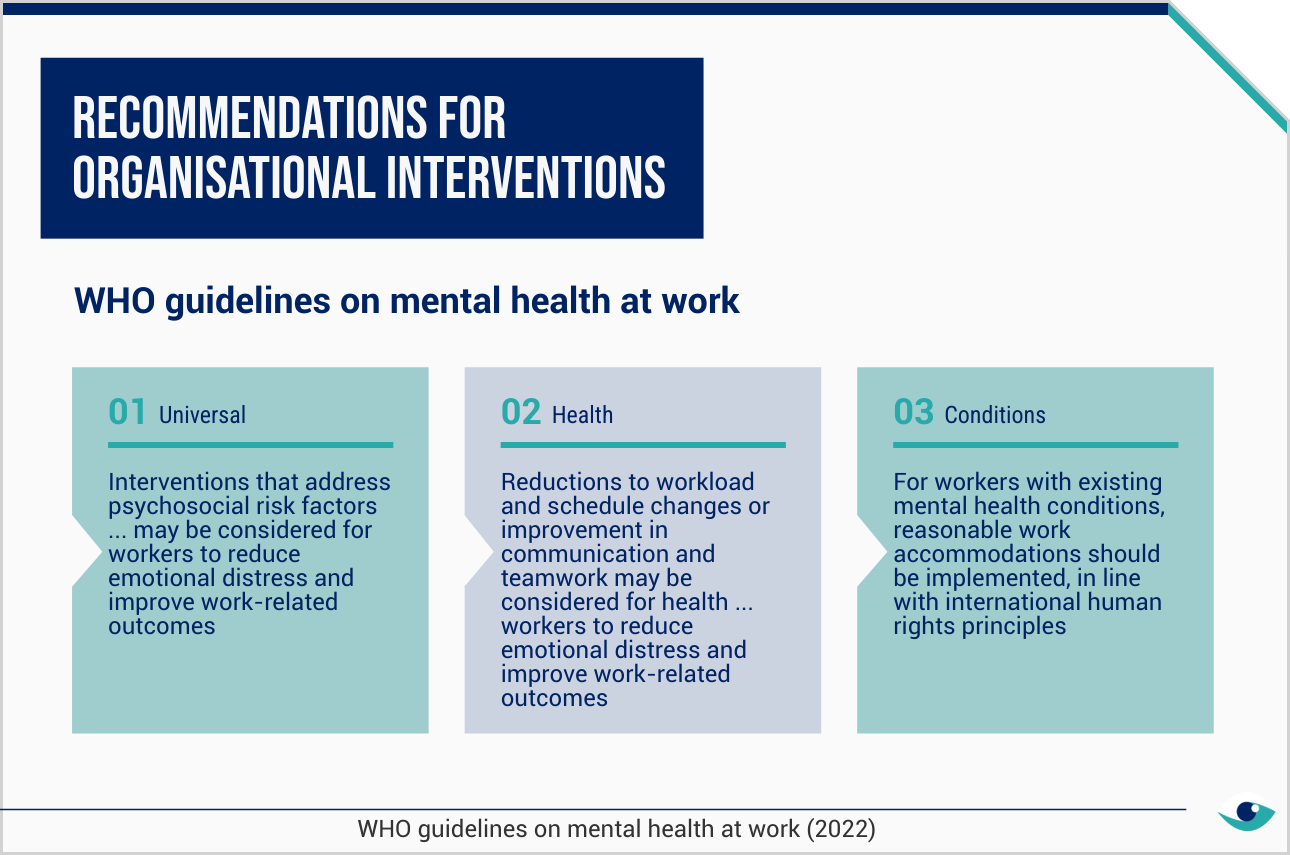Mental health is insufficiently represented by the UN Sustainable Development Goals (SDGs). Although mental health is referred to in SDG#3 (Good health and well-being), the indicator associated with mental health is a metric covering suicide rates (Target 3.4.1). Since the inception of the SDGs, the lack of a dedicated focus on mental health has been a hindrance to progress towards SDG#3. Nevertheless, in the aftermath of a pandemic and a backdrop of labour shortages and strained public finances, there are calls for an approach to mental health that is more integrated with the SDGs. Corporate actions in the health sector offer useful examples of progress.

Recognition of mental health as a source of business risk
Although the 2030 Agenda has been slow to recognise and achieve consensus on the policy prescription, firms have been taking action
UN Sustainable Development Goals
Health (all industries)
AT A GLANCE
Although the SDGs provide insufficient coverage of mental health, corporate actions in the health sector offer useful examples of progress.
Presenteeism and staff turnover (more than absenteeism) can impose significant financial costs.
Building workers’ stress management skills is important for individual health-related interventions.

The costs of mental health
It is widely acknowledged that SDG#3 is crucial for the achievement of the 2030 Agenda. Indicator 3.4 encourages policy action to prevent and treat disorders related to mental and neurological conditions as well as substance use. However, the policy focus on a suicide-related target tends to stigmatisation. At the level of industries and individual firms, there is an emerging appreciation of mental health as a source of risk to business continuity. As noted in a recent report by Deloitte, presenteeism and staff turnover (more than absenteeism) can impose significant financial costs.
Employee support measures
A review of public disclosures by 20 of the world's leading health sector entities shows a variety of measures being deployed to support the mental health of employees. One of the most common provisions is flexible employee assistance or counselling. Roche, which covers mental health more extensively than most in its latest sustainability report, refers to regular initiatives to improve social connections at work, a network of dedicated Mental Health Champions and First Aiders and surveys of staff well-being.

Specific challenges in health
In the health sector, the training of managers on mental health-related topics can be more challenging in specific functions where staff are subject to long hours and shift work. This can be even more challenging in countries with humanitarian emergencies or health systems that are stretched to capacity. Technology provides an opportunity to overcome time constraints some health workers may face. Brazil's RaiaDrogasil offers a rich digital platform to its employees, alongside a Mental Health Day for all staff and dependents.
Corporate actions inform SDG#3
Building workers’ stress management skills is important for individual health-related interventions. Health workers are acutely exposed to stress and burnout risks. While there is criticism of SDG#3-related indicators pertaining to mental health, there are salient recent examples of health entities that have recognised the benefits of proactive risk mitigation.
FURTHER READING
- Mental health and employers (Deloitte)
- 2023 Mental Health at Work Report (Mind Share Partners)
- Comprehensive Mental Health Action Plan 2013-2030 (WHO)
